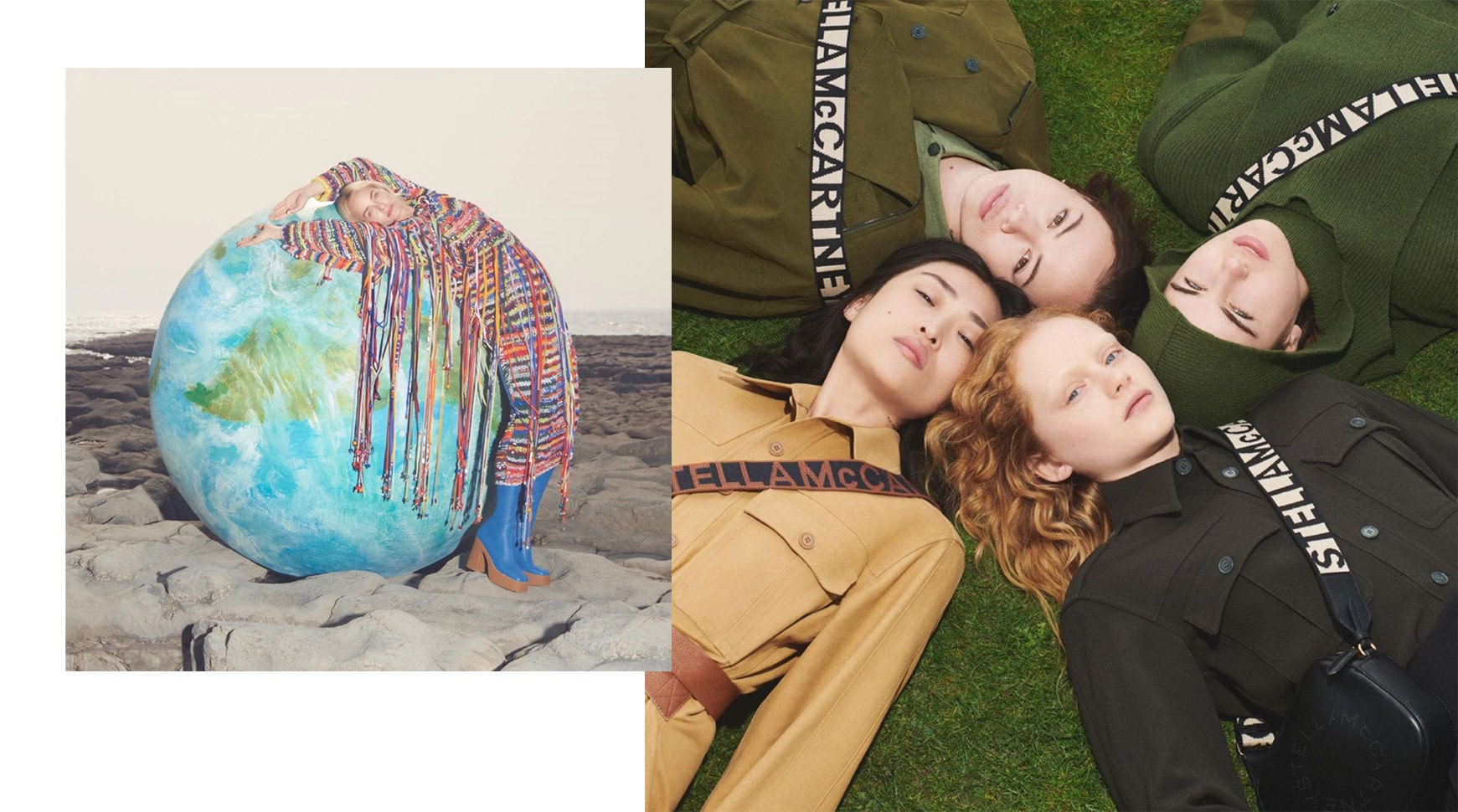The conversation surrounding fashion’s sustainability efforts has, for good reason, reached fever pitch, and world leaders are listening. Coupled with the recent G7 summit hosted in Biarritz, France, French President Emmanuel Macron debuted his Fashion Pact in partnership with Francois-Henri Pinault, chair and CEO of Gucci’s parent company, Kering. This comes three months after talks of a ‘coalition’ by Pinault at April’s Copenhagen Fashion Summit.
The pact, which has now been joined by a total of 32 companies (and their 150 respective brands) is the latest development towards a united sustainability mission for the fashion industry, which has consistently come under fire for its environmental negligence. Whilst it’s not legally binding, the pact is the most concrete thing we’ve seen so far, with science-based targets being used to set out three areas for commitment: climate, biodiversity and ocean preservation.
Making up the 150 brands involved are some of fashion’s heaviest hitters: Gucci, Balenciaga, Prada, Chanel and Hermès (to name a few). It’s still early days, and we’re yet to see how the pact will play out in our wardrobes, so we’re taking a look at what some of the signatory brands are already doing to curb their environmental footprint and turn our focus to recycling.
Stella McCartney
Stella McCartney’s signature on the Kering-led pact show us her loyalties lie to the environment over parent company and Kering competitor, LVMH, who are currently yet to join. McCartney represents the industry’s key sustainability leader with groundbreaking up-cycled designs, such as her recent 2019 collection featuring paperclip earrings, rubber-band necklaces and outerwear made from previous-season’s fabrics. McCartney has consistently donated to organisations such as the Rainforest Alliance, WWF, and is currently working with Google to develop a data analysis tool for the quantification of sustainably sourced fabrics in the industry.

Stella McCartney
Stella McCartney’s signature on the Kering-led pact show us her loyalties lie to the environment over parent company and Kering competitor, LVMH, who are currently yet to join. McCartney represents the industry’s key sustainability leader with groundbreaking up-cycled designs, such as her recent 2019 collection featuring paperclip earrings, rubber-band necklaces and outerwear made from previous-season’s fabrics. McCartney has consistently donated to organisations such as the Rainforest Alliance, WWF, and is currently working with Google to develop a data analysis tool for the quantification of sustainably sourced fabrics in the industry.
Prada
Prada’s nylon accessories have achieved cult-status since their debut in 1984 and their 2018 revival, but this synthetic fabric has major shortcomings when it comes to sustainability. This year, Prada launched their Re-Nylon initiative to tackle this, and old favourites were given new life in capsule collections. The initiative is accompanied by their partnership with UNESCO, which aims to develop educational resources for students around circular economies and waste reduction.

Burberry
Last year Burberry announced an end to the burning of old products, and soon after, a boycott of real fur products in new collections. Earlier this month, Burberry continued to lead the change, debuting their ECONYL capsule collection as part of their #ReBurberry initiative, to turn focus to up-cycling processes. Garments were made with sustainable nylon yarn from regenerated fishing nets, fabric scraps and industrial plastic.

Burberry
Last year Burberry announced an end to the burning of old products, and soon after, a boycott of real fur products in new collections. Earlier this month, Burberry continued to lead the change, debuting their ECONYL capsule collection as part of their #ReBurberry initiative, to turn focus to up-cycling processes. Garments were made with sustainable nylon yarn from regenerated fishing nets, fabric scraps and industrial plastic.
Zara
Zara’s sustainable Join Life collection uses up-cycled fabrics to innovate garments and will represent 20 per cent of their offerings by the end of this year. By 2023 they pledge the abolishment of single-use plastics, with 100 per cent sustainable fabric usage and zero landfill waste from facilities by 2025.

Converse
The #ConverseRenew initiative turned heads this year in representing a new pace for streetwear. Their iconic Chuck Taylor sneaker received a 21st century face-lift, with a new sneaker line made from used plastics and recycled polyester laces. Their success was met with a follow-up line, with Chuck 70s, composed of up-cycled denim jeans, in collaboration with UK vintage retailers.

Converse
The #ConverseRenew initiative turned heads this year in representing a new pace for streetwear. Their iconic Chuck Taylor sneaker received a 21st century face-lift, with a new sneaker line made from used plastics and recycled polyester laces. Their success was met with a follow-up line, with Chuck 70s, composed of up-cycled denim jeans, in collaboration with UK vintage retailers.
From top: @stellamccartney; @prada; @burberry; @zara; @converse.



